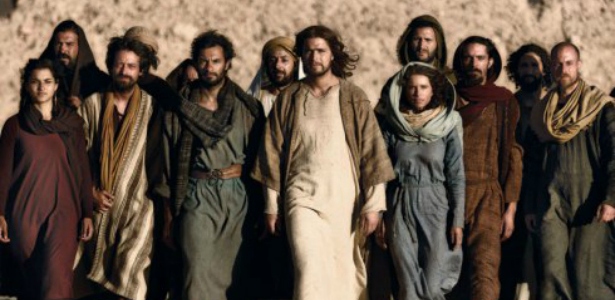As I was asked in the church by a teenager regarding the hardening of Pharaoh’s heart, I challenged him and myself to read all the chapters in Exodus over this issue (Exodus 3-12). The task was to see for ourselves who hardens the heart of people: is it God or the people themselves – in our case Pharaoh (and his officials)? Or maybe the heart gets there by itself…
The story in a nutshell
Let us first see the context – Israel in the Egyptian bondage. The Lord God is interested to get His people out of Egypt.
“The Lord said: I have indeed seen the misery of my people in Egypt. I have heard them crying out because of their slave drivers, and I am concerned about their suffering. So I have come down to rescue them from the hand of the Egyptians and to bring them up out of that land into a good and spacious land, a land flowing with milk and honey […].” (Exodus 3:7-8)
Accordingly, God sends His messenger, Moses to the king of Egypt, with the solemn request to let the people go into the wilderness for several days to bring sacrifices to God: “So now, go. I am sending you to Pharaoh to bring my people the Israelites out of Egypt.” (Exodus 3:10)
Yet God knows ahead of time what would be Pharaoh’s reaction to their plea and the whole process (Exodus 3:19-21):
“But I know that the king of Egypt will not let you go unless a mighty hand compels him. So I will stretch out my hand and strike the Egyptians with all the wonders that I will perform among them. After that, he will let you go. And I will make the Egyptians favorably disposed toward this people.”
In one sentence, “Pharaoh will not let Israel go unless…”
The intrigue
Towards this end of the chapter we get the first trigger of our discussion, when God warns Moses: “But I will harden his heart so that he will not let the people go” (Exodus 3:21).
Aha, one might say, do you see? God is the one that does it! He hardens the hearts of people. Solved issue, yet disappointing…
But wait a little bit, we might also reply, as God continues: “Then say to Pharaoh: This is what the Lord says: Israel is my firstborn son, and I told you, ‘Let my son go, so he may worship me.’ But you refused to let him go; so I will kill your firstborn son.” (Exodus 3:22-23)
We cannot skip this important part “you refused to let him go”. If we read indeed only the verse 21, where it says it so clear “I will harden his heart” it looks like all is settled. God hardens the heart of the man. Quick conclusions: the man should not be held accountable, God is guilty for all, He is putting up a game just to show his power. In short – all is a theatrical play. But is it so?
By the way (we might say): brother Moses, if you knew this was all a play, why did you refrain from rebuking God for hardening the heart of Pharaoh? (You know, Moses himself is the one who wrote Exodus. Thus, it would be absurd to just think that all is a play and that he fooled himself in front of the king).
Let us have before our eyes these two things: (1) what God does, and (2) what man does. This couple will come time and again into the story. God says he hardens the heart, yet the story presents the human person as a stubborn being, in a continual refusal even amidst all the proofs to give up.
First appeal to Pharaoh
Let’s read the first dialogue between Moses and Pharaoh.
“Afterward Moses and Aaron went to Pharaoh and said: This is what the Lord, the God of Israel, says: ‘Let my people go, so that they may hold a festival to me in the wilderness.’ Pharaoh said: ‘Who is the Lord, that I should obey him and let Israel go? I do not know the Lord and I will not let Israel go.’” (Exodus 5:1-2)
As we can see it, Pharaoh is already setting up himself on opposite side by unmistaken words “I do not know the Lord”. This is the platform we are building on – a man in power who does not acknowledge a greater power that tries to convince him of anything.
God Promises Deliverance
After this first encounter, God tells Moses again the full plan:
- there will be miracles performed,
- there will be a stubborn opposition manifested (that is why miracles follow one after another),
- in the end a wonderful deliverance, after the last miracle who is a knock-out punch.
Then the Lord said to Moses, “Now you will see what I will do to Pharaoh: Because of my mighty hand he will let them go; because of my mighty hand he will drive them out of his country.” (Exodus 6:1). ”But I will harden Pharaoh’s heart, and though I multiply my signs and wonders in Egypt, he will not listen to you. Then I will lay my hand on Egypt and with mighty acts of judgment I will bring out my divisions, my people the Israelites. And the Egyptians will know that I am the Lord when I stretch out my hand against Egypt and bring the Israelites out of it.” (Exodus 7:3-5)
The first miracle and the first 5 plagues
Indeed, after the first snake-staff miracle “yet Pharaoh’s heart became hard and he would not listen to them…” (Exodus 7:13). Please read it again, his heart became hard.
- The Plague of Blood:
“Pharaoh’s heart is unyielding; he refuses to let the people go” (Exodus 7:14); “Pharaoh’s heart became hard; he would not listen to Moses and Aaron, just as the Lord had said. Instead, he turned and went into his palace, and did not take even this to heart.” (Exodus 7:22-23)
- The Plague of Frogs:
“But when Pharaoh saw that there was relief, he hardened his heart and would not listen…” (Exodus 8:15)
- The Plague of Gnats:
“the magicians said to Pharaoh: This is the finger of God. But Pharaoh’s heart was hard and he would not listen (Exodus 8:19).
- The Plague of Flies:
“But this time also Pharaoh hardened his heart and would not let the people go.” (Exodus 8:32).
- The Plague on Livestock:
“Yet his heart was unyielding and he would not let the people go.” (Exodus 9:7)
Although there are some minor signs of repentance from Pharaoh, the moment he feels relieved from the plague he comes back to his stubbornness.
By now in more than half of the wonders (1 miracle and 5 plagues) we are clearly told about Pharaoh himself that “he hardened his heart” – unyielding, becoming hard, not listening etc.
The last 5 plagues
Only in plague #6 we do come back to the intriguing idea:
- The Plague of Boils:
“But the Lord hardened Pharaoh’s heart and he would not listen.” (Exodus 9:12)
Although there is no explanation, again, for this way of putting it (“God hardens the heart of man”), we are told about God’s efforts and power to save right away. God does not need to go this painful way…
God warns Pharaoh:
“For by now I could have stretched out my hand and struck you and your people with a plague that would have wiped you off the earth. But I have raised you up for this very purpose, that I might show you my power and that my name might be proclaimed in all the earth” (Exodus 9:15-16).
Verse 17 tells it all over again: “You still set yourself against my people and will not let them go” .
Following the 7th plague we see some greater signs of repentance (there were some before…). “Then Pharaoh summoned Moses and Aaron. ‘This time I have sinned,’ he said to them. ‘The Lord is in the right, and I and my people are in the wrong. Pray to the Lord, for we have had enough thunder and hail. I will let you go; you don’t have to stay any longer.’” (Exodus 9:27-28). However, Moses is not to allow himself to be fooled, and that is why he boldly tells Pharaoh: ”But I know that you and your officials still do not fear the Lord God.” (Exodus 9:30) (see #8)
- The Plague of Hail:
“When Pharaoh saw that the rain and hail and thunder had stopped, he sinned again: He and his officials hardened their hearts. So Pharaoh’s heart was hard and he would not let the Israelites go, just as the Lord had said through Moses.” (Exodus 9:34-35)
Again, his “heart was hard”. As we are approaching more dangerous plagues for the Egyptians, the warnings are also given in much louder terms:
“Then the Lord said to Moses: Go to Pharaoh, for I have hardened his heart and the hearts of his officials” (Exodus 10:1); “This is what the Lord, the God of the Hebrews, says: ‘How long will you refuse to humble yourself before me? (Exodus 10:3)
We see again the double image: it looks like God hardens the heart and yet it is obvious a continual refusal from the recipients of the warning.
After the plague, as before, “Pharaoh quickly summoned Moses and Aaron and said, ‘I have sinned against the Lord your God and against you. Now forgive my sin once more and pray to the Lord your God to take this deadly plague away from me.’” (Exodus 10:16-17).
- The Plague of Locusts:
“But the Lord hardened Pharaoh’s heart, and he would not let the Israelites go.” (Exodus 10:20)
- The Plague of Darkness:
“But the Lord hardened Pharaoh’s heart, and he was not willing to let them go.” (Exodus 10:27)
- The Plague on the death of the Firstborn:
“I will bring one more plague on Pharaoh and on Egypt. After that, he will let you go from here, and when he does, he will drive you out completely. (Exodus 11:1). See also verse 3: ”The Lord made the Egyptians favorably disposed toward the people, and Moses himself was highly regarded in Egypt by Pharaoh’s officials and by the people.”
In the 11th chapter we have again a review of all the story, of all the steps involved: “The Lord had said to Moses: ‘Pharaoh will refuse to listen to you—so that my wonders may be multiplied in Egypt.’ Moses and Aaron performed all these wonders before Pharaoh, but the Lord hardened Pharaoh’s heart, and he would not let the Israelites go out of his country.” (Exodus 11:9-10). As one can see, it is the same couple: a refusal to listen, a hardening that takes place.
This is the order of things, not the other way around. The refusal to listen takes one to hardening of the heart.
The Exodus
Finally, the order is given: “During the night Pharaoh summoned Moses and Aaron and said, Up! Leave my people, you and the Israelites! Go, worship the Lord as you have requested. Take your flocks and herds, as you have said, and go. And also bless me. The Lord had made the Egyptians favorably disposed toward the people, and they gave them what they asked for; so they plundered the Egyptians” (Exodus 12:31-32, 36).
In the next chapter there is a strong emphasis on the idea that “The Lord brought them with his mighty hand” – it is found 4 times (verses 3, 9, 14 and 16), but not without pointing out that ”Pharaoh stubbornly refused to let us go” (verse 15).
The last step – crossing the Sea
Even after all the destruction brought over Egypt, Pharaoh and his officials did not repent. God said: “And I will harden Pharaoh’s heart, and he will pursue them” (all the way into the wilderness). (Exodus 14:4). And again in verse 5: “When the king of Egypt was told that the people had fled, Pharaoh and his officials changed their minds about them…” While in verse 8: “The Lord hardened the heart of Pharaoh king of Egypt, so that he pursued the Israelites, who were marching out boldly.” It is the same pattern, although it might be in a different order of words or people involved: hardening, changing his mind, hardening further…
Finally, while the Israelites were crossing the sea, the same image came all over. The hardening of the Egyptians made them go all the way into the sea, towards their own death. “Then the Lord said to Moses: ‘Why are you crying out to me? Tell the Israelites to move on. Raise your staff and stretch out your hand over the sea to divide the water so that the Israelites can go through the sea on dry ground. I will harden the hearts of the Egyptians so that they will go in after them. And I will gain glory through Pharaoh and all his army, through his chariots and his horsemen. The Egyptians will know that I am the Lord when I gain glory through Pharaoh, his chariots and his horsemen.” (Exodus 14:15-18)
Summary
When we pray “Our Father” we do say “and lead us not into temptation” (see Matthew 6). We are quite sure that God would not look to get us into temptation, as it is plainly said: “When tempted, no one should say ’God is tempting me.’ For God cannot be tempted by evil, nor does he tempt anyone but each person is tempted when they are dragged away by their own evil desire and enticed” (James 1:13-14).
But, as said in many other places, when God allows something to happen, the Bible sometimes said that God did it. As in the case of Job: Satan was bringing suffering and hurt to the man of God, and yet in the discussion it seems that God is the one responsible (at least how Job perceives it – „God has taken away…”)
So, who hardens the heart of man? We answer: man does. Let us be clear, God does not do anything wrong. And it would be even crazier to think that, after God would do it, He then will charge you for that. This is what Satan does! He tempts you, and then, when you fail, he shames you even more. God is not so!
God would like to give us hearts of flesh, not hearts of stone. “I will give them an undivided heart and put a new spirit in them; I will remove from them their heart of stone and give them a heart of flesh” (Ezekiel 11:19). And again: “I will give you a new heart and put a new spirit in you; I will remove from you your heart of stone and give you a heart of flesh.” (Ezekiel 36:26).
Q. At some point the rich young ruler talks to Jesus and He replies. Jesus does not call Himself good. Why is that? Is it because he has to yet conquer sin? Because he has to overcome sin? Can you help me?











